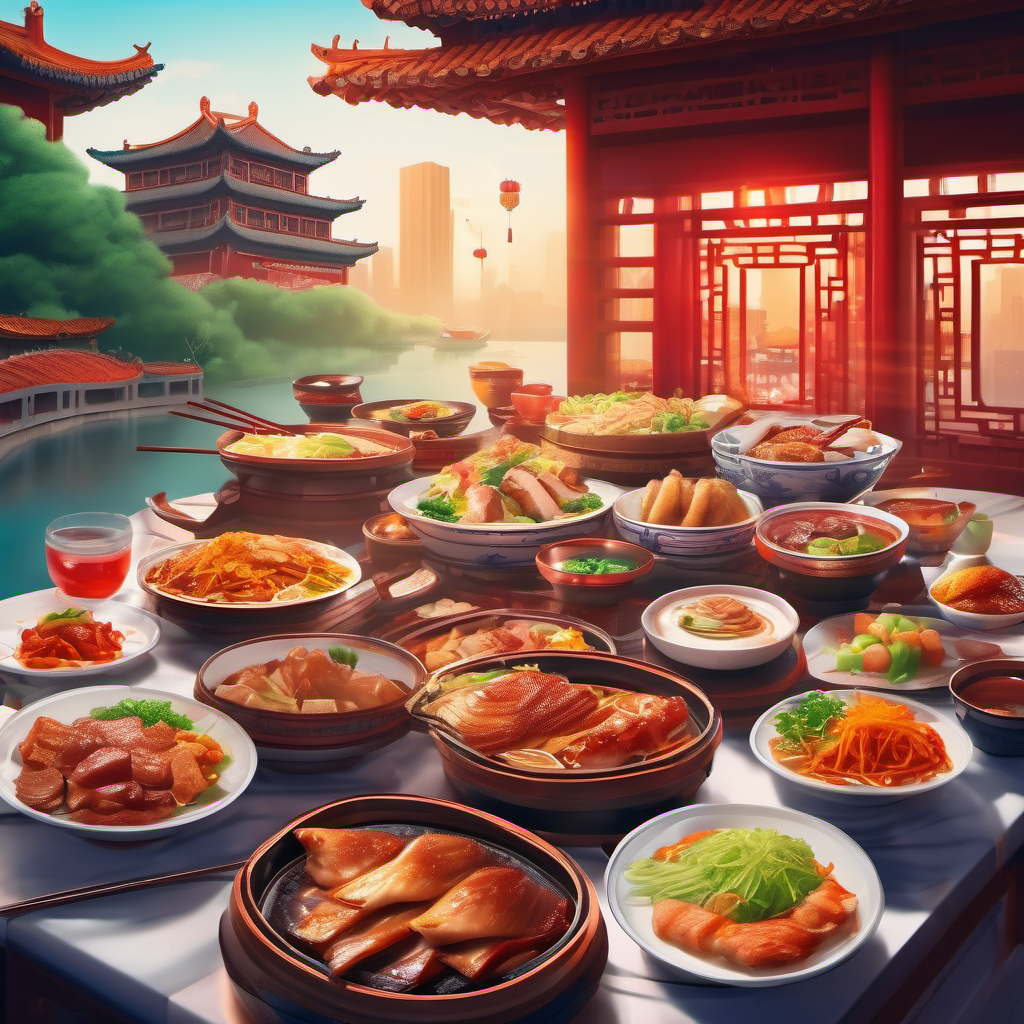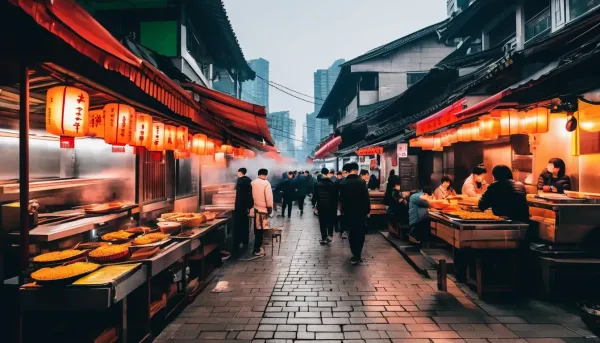Beyond Peking Duck: A Look at Beijing's Thriving Culinary Scene
Beijing's food scene is a captivating tapestry woven from history, tradition, and modern innovation. It's a city that caters to every palate, offering a spectrum of experiences that go far beyond the iconic Peking Duck.

Beijing, China's imperial heart and contemporary powerhouse, pulsates with a life unlike any other. Over 20 million souls call this metropolis home, a vibrant tapestry woven from diverse ethnicities and a rich history. This blend of cultures extends far beyond the architectural marvels and bustling streets, permeating every facet of life – most notably, the city's culinary scene.
Despite its undeniable charm, Beijing's food scene has faced an unfair reputation. Often dismissed as a mere "dessert" compared to the fiery delights of Sichuan or the delicate artistry of Cantonese cuisine, the city's offerings are unfairly overshadowed by the iconic Peking Duck. This article aims to dismantle this misconception and unveil the true depth and vibrancy of Beijing's culinary landscape.
A Legacy Shaped by Emperors and Everyday Lives
Beijing's cuisine is a fascinating confluence of history and practicality. As the seat of power for centuries, emperors indulged in a world of luxury and refined tastes. This "Imperial Cuisine" emphasized intricate preparation techniques, exquisite presentation, and a focus on seasonal ingredients. Dishes like "Buddha Jumps Over the Wall," a simmered broth packed with premium seafood and meats, exemplify this opulent tradition.
However, Beijing's culinary story isn't solely confined to the confines of the Forbidden City. The lives of everyday Beijingers have also profoundly shaped the city's food scene. The surrounding geography, characterized by plains and mountains, has led to a reliance on readily available ingredients like wheat, pork, and seasonal vegetables. This practicality birthed hearty and comforting dishes like Zha Jiang Mian (noodles with fermented soybean paste) and dumplings (jiaozi), staples that continue to fuel the city's busy population.
A Culinary Adventure Through the Hutongs
Venture beyond the grand avenues and delve into the labyrinthine alleys of Beijing's hutongs – traditional neighborhoods known for their close-knit communities and hidden culinary gems. Here, the air is thick with the aroma of sizzling street food. Jianbing, a savory crepe filled with egg, vegetables, and a touch of fiery chili paste, is a breakfast favorite enjoyed on the go. For a more substantial bite, indulge in Rou Jia Mo, a decadent combination of tender, braised pork nestled within a fluffy white roll.
These mobile kitchens are not merely purveyors of sustenance; they are vibrant social hubs. Locals gather around vendors, exchanging stories and laughter as they savor the fresh, affordable fare. This communal aspect is a defining characteristic of Beijing's street food culture, fostering a sense of belonging and togetherness.
A Feast for the Senses: Hot Pot and Beyond
As dusk settles, a different kind of dining experience takes center stage – Hot Pot. This interactive culinary adventure involves a simmering pot of broth at the center of the table, surrounded by a dazzling array of thinly sliced meats, seafood, vegetables, noodles, and dumplings. Diners cook their chosen ingredients in the bubbling broth, creating their own personalized concoctions with every dip.
Hot Pot is as much a social activity as it is a culinary feast. Friends and families gather around the pot, sharing stories, laughter, and the joy of cooking and eating together. The communal aspect of the meal fosters a sense of camaraderie and creates lasting memories.
While street food and hot pot offer a more casual dining experience, Beijing also boasts a thriving scene of upscale restaurants. Here, diners can delve deeper into regional specialties from across China. Savor the delicate flavors of Shanghainese cuisine, characterized by its emphasis on fresh seafood and light broths. Immerse yourself in the fiery delights of Sichuan, where bold flavors reign supreme, with dishes like Kung Pao Chicken and Sichuan Hot Pot tantalizing your taste buds.
A Spark from Colliding Cuisines
Immigrants brought their hometown's culinary techniques and ingredients as they settled in Beijing. They opened restaurants, introducing their local dishes to the city's residents. Over time, these dishes intertwined with Beijing's existing food culture, gradually forming the unique flavors that define Beijing cuisine today.
For example, immigrants from Shandong province introduced the refined and meticulous style of Lu cuisine, while those from Sichuan brought the fiery and aromatic flavors of Sichuan cuisine. These distinct culinary styles collided and melded in Beijing, giving rise to numerous new dishes and cooking methods.
A Modern Twist on Tradition
Beijing's culinary scene isn't stagnant. It constantly evolves, incorporating modern influences while preserving its rich heritage. Michelin-starred restaurants are pushing the boundaries of innovative cuisine, offering a contemporary twist on classic dishes. Local entrepreneurs are reimagining street food favorites, introducing new ingredients and flavor combinations.
This willingness to experiment, while staying true to its roots, is what makes Beijing's culinary scene so dynamic and exciting. It caters to every palate, offering a spectrum of experiences from the humble street vendor to the opulent fine-dining establishment.
A City That Tantalizes Every Taste Bud
Beijing's food scene is a captivating tapestry woven from history, tradition, and modern innovation. It's a city that caters to every palate, offering a spectrum of experiences that go far beyond the iconic Peking Duck.
So, the next time you find yourself in the capital, ditch the preconceived notions and embark on a culinary adventure. From the familiar comfort of street food to the exquisite flavors of regional specialties, and the heartwarming experience of a shared hot pot, Beijing's food scene promises an unforgettable journey that will leave you yearning for more.



